 On today's BradCast: Coverage of the two (yes, two) most recent (yes, most recent) blockbuster reports regarding the President, as leaked out of the Oval Office. [Audio link to show follows below.]
On today's BradCast: Coverage of the two (yes, two) most recent (yes, most recent) blockbuster reports regarding the President, as leaked out of the Oval Office. [Audio link to show follows below.]
First up today: Washington Post's explosive report from late yesterday detailing Donald Trump's alleged (and all but confirmed by Trump himself) sharing of highly classified information (reportedly now from Israel) during his recent meeting in the Oval Office with Russian Foreign Minister Lavrov and Ambassador Kislyiak. The White House, largely via National Security Adviser H.R. McMaster, strongly denies any wrong doing.
We're joined to discuss that and what we know and don't about it all, by Elizabeth Goitein, co-director of the Liberty and National Security Program at NYU's Brennan Center for Justice. And, unlike those who are reporting that Trump broke no laws in his alleged disclosure of sensitive information regarding ISIS, Goitein argues the case is not so clear cut.
Classification and declassification of sensitive information is spelled out by Executive Order of the President. "The existing Executive Order was written by President Obama. It is still in force unless or until Trump revokes it or replaces it," Goitein explains. "But President Obama himself would not have been bound by his own Executive Order. President Trump is not bound by that Executive Order. I think it's problematic that Presidents are not bound by their own Executive Orders. Or, I should say, it's problematic they can secretly depart from those orders. Ideally we would have a classification Executive Order that says what the President can do, even if it's just 'The President is exempt from all of these rules.'"
However, Goitein suggests that even a President could face legal exposure via the Espionage Act of 1917.
"The Executive Order is not the only law that is at play here," she tells me. "Congress has also stepped in on various occasions, to regulate the disclosure of national security information. And there are several statutes in which Congress has done that. The statute that seems most relevant here is the Espionage Act. And this is the law that President Obama infamously used to prosecute national security whistle-blowers and others who leaked information to the media, rather than actual spies and traitors, which is whom the law was designed to address. But this law, on its face, prohibits the communication of information related to the national defense --- whether that information is classified or not --- to anyone not entitled to receive it, if there's reason to believe it could be used either to harm the United States or to aid a foreign nation. So on it's face, that statute would certainly seem to apply."
I discuss that and much more with Goitein about this entire fine mess today. It's worth tuning in for that alone. But then...
Breaking hard mid-show today: The New York Times' perhaps even more explosive report detailing a memo written by then FBI Director James Comey describing his February one-on-one meeting with the President in the Oval Office, in which Comey reportedly charges that Trump requested he drop the Bureau's ongoing investigation into former National Security Adviser Michael Flynn. "I hope you can let this go," Trump said to Comey, according to the Times, in an account also vigorously denied by the White House, but which, if true, would amount to a very serious case of Obstruction of Justice by the President of the United States.
If only there was a taping system of some kind in the Oval Office so we could figure out who's telling the truth.
Finally today, after disembarking from that insane news roller coaster, if only for the moment, we finish up today with Desi Doyen and our latest Green News Report, because the planet doesn't really give a damn about either national security or politics...
(Snail mail support to "Brad Friedman, 7095 Hollywood Blvd., #594 Los Angeles, CA 90028" always welcome too!)
|


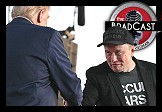 Trump Gets Trumped in Our Musky Year-End Roundtable: 'BradCast' 12/19/24
Trump Gets Trumped in Our Musky Year-End Roundtable: 'BradCast' 12/19/24 'Green News Report' 12/17/24
'Green News Report' 12/17/24
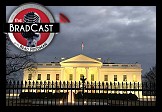 About Some of Trump's
About Some of Trump's Trump Family Corruption Cometh...So Does Our Oppo-sition: 'BradCast' 12/17/24
Trump Family Corruption Cometh...So Does Our Oppo-sition: 'BradCast' 12/17/24 'Green News Report' 12/17/24
'Green News Report' 12/17/24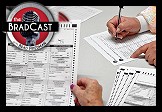 Mistallied Contests Found in OH County, as Oligarchy Rises in D.C.: 'BradCast' 12/16/24
Mistallied Contests Found in OH County, as Oligarchy Rises in D.C.: 'BradCast' 12/16/24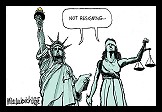 Sunday 'Barrel Bottom' Toons
Sunday 'Barrel Bottom' Toons Trump Admits He Can't Lower Grocery Prices (Biden Just Did): 'BradCast' 12/12/24
Trump Admits He Can't Lower Grocery Prices (Biden Just Did): 'BradCast' 12/12/24 'Green News Report' 12/12/24
'Green News Report' 12/12/24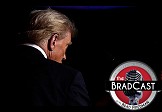 What 'Unprecedented and Powerful Mandate'?: 'BradCast' 12/11/24
What 'Unprecedented and Powerful Mandate'?: 'BradCast' 12/11/24 Trump Barely Won Nationally, But Won 'News Deserts' By a Landslide: 'BradCast' 12/10
Trump Barely Won Nationally, But Won 'News Deserts' By a Landslide: 'BradCast' 12/10 'Green News Report' 12/10/24
'Green News Report' 12/10/24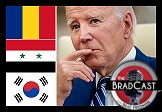 Bad Weekend for Authorit-arianism; Also: To Pardon or Not?: 'BradCast' 12/9/24
Bad Weekend for Authorit-arianism; Also: To Pardon or Not?: 'BradCast' 12/9/24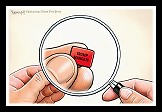 Sunday 'Teeny Tiny' Toons
Sunday 'Teeny Tiny' Toons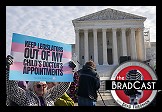 Fox 'News' and GOP Get Their Hateful War on Trans Kids at SCOTUS: 'BradCast' 12/5/24
Fox 'News' and GOP Get Their Hateful War on Trans Kids at SCOTUS: 'BradCast' 12/5/24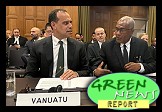 'Green News Report' 12/5/24
'Green News Report' 12/5/24 'Mind Boggles at Potential Corruption' in Trump Scheme: 'BradCast' 12/4/24
'Mind Boggles at Potential Corruption' in Trump Scheme: 'BradCast' 12/4/24 In Defense of Democracy from S. Korea to N. Carolina: 'BradCast' 12/3/24
In Defense of Democracy from S. Korea to N. Carolina: 'BradCast' 12/3/24 Hunter's Pardon: 'BradCast' 12/2/24
Hunter's Pardon: 'BradCast' 12/2/24 How (and Why!) to 'Extend Olive Branch' to MAGA Members: 'BradCast' 11/21/24
How (and Why!) to 'Extend Olive Branch' to MAGA Members: 'BradCast' 11/21/24 Former Prosecutor: Sentence Trump in NY Before Taking Office: 'BradCast' 11/20/24
Former Prosecutor: Sentence Trump in NY Before Taking Office: 'BradCast' 11/20/24 'Bullet Ballot' Claims, Other Arguments for Hand-Counting 2024: 'BradCast' 11/19/24
'Bullet Ballot' Claims, Other Arguments for Hand-Counting 2024: 'BradCast' 11/19/24 Trump Already Violating Law During Transition: 'BradCast' 11/18/24
Trump Already Violating Law During Transition: 'BradCast' 11/18/24 Computer Experts Ask Harris to Seek Hand-Counts After Breaches: 'BradCast' 11/14/24
Computer Experts Ask Harris to Seek Hand-Counts After Breaches: 'BradCast' 11/14/24
 VA GOP VOTER REG FRAUDSTER OFF HOOK
VA GOP VOTER REG FRAUDSTER OFF HOOK Criminal GOP Voter Registration Fraud Probe Expanding in VA
Criminal GOP Voter Registration Fraud Probe Expanding in VA DOJ PROBE SOUGHT AFTER VA ARREST
DOJ PROBE SOUGHT AFTER VA ARREST Arrest in VA: GOP Voter Reg Scandal Widens
Arrest in VA: GOP Voter Reg Scandal Widens ALL TOGETHER: ROVE, SPROUL, KOCHS, RNC
ALL TOGETHER: ROVE, SPROUL, KOCHS, RNC LATimes: RNC's 'Fired' Sproul Working for Repubs in 'as Many as 30 States'
LATimes: RNC's 'Fired' Sproul Working for Repubs in 'as Many as 30 States' 'Fired' Sproul Group 'Cloned', Still Working for Republicans in At Least 10 States
'Fired' Sproul Group 'Cloned', Still Working for Republicans in At Least 10 States FINALLY: FOX ON GOP REG FRAUD SCANDAL
FINALLY: FOX ON GOP REG FRAUD SCANDAL COLORADO FOLLOWS FLORIDA WITH GOP CRIMINAL INVESTIGATION
COLORADO FOLLOWS FLORIDA WITH GOP CRIMINAL INVESTIGATION CRIMINAL PROBE LAUNCHED INTO GOP VOTER REGISTRATION FRAUD SCANDAL IN FL
CRIMINAL PROBE LAUNCHED INTO GOP VOTER REGISTRATION FRAUD SCANDAL IN FL Brad Breaks PA Photo ID & GOP Registration Fraud Scandal News on Hartmann TV
Brad Breaks PA Photo ID & GOP Registration Fraud Scandal News on Hartmann TV  CAUGHT ON TAPE: COORDINATED NATIONWIDE GOP VOTER REG SCAM
CAUGHT ON TAPE: COORDINATED NATIONWIDE GOP VOTER REG SCAM CRIMINAL ELECTION FRAUD COMPLAINT FILED AGAINST GOP 'FRAUD' FIRM
CRIMINAL ELECTION FRAUD COMPLAINT FILED AGAINST GOP 'FRAUD' FIRM RICK SCOTT GETS ROLLED IN GOP REGISTRATION FRAUD SCANDAL
RICK SCOTT GETS ROLLED IN GOP REGISTRATION FRAUD SCANDAL VIDEO: Brad Breaks GOP Reg Fraud Scandal on Hartmann TV
VIDEO: Brad Breaks GOP Reg Fraud Scandal on Hartmann TV RNC FIRES NATIONAL VOTER REGISTRATION FIRM FOR FRAUD
RNC FIRES NATIONAL VOTER REGISTRATION FIRM FOR FRAUD EXCLUSIVE: Intvw w/ FL Official Who First Discovered GOP Reg Fraud
EXCLUSIVE: Intvw w/ FL Official Who First Discovered GOP Reg Fraud GOP REGISTRATION FRAUD FOUND IN FL
GOP REGISTRATION FRAUD FOUND IN FL
































 On today's
On today's 





 It's a dark day on today's
It's a dark day on today's 













